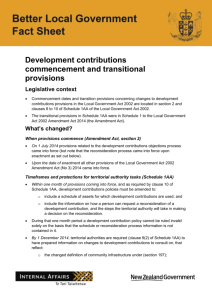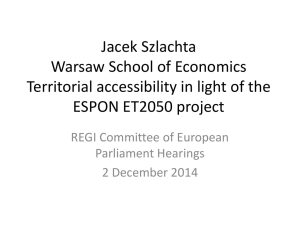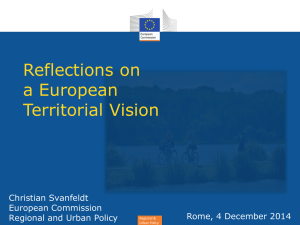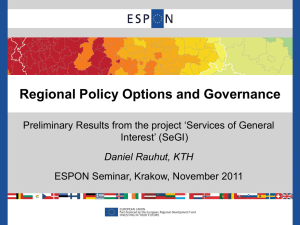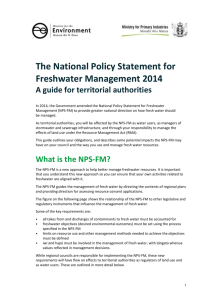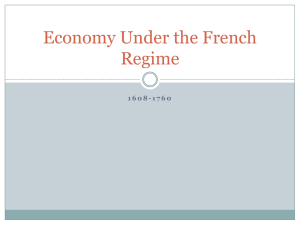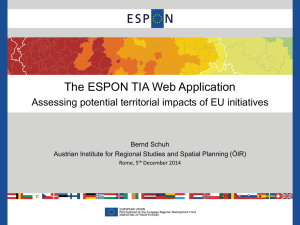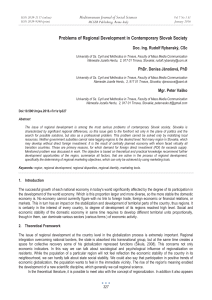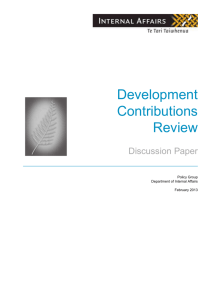Development contribution purpose and principles (sections 197AA
advertisement
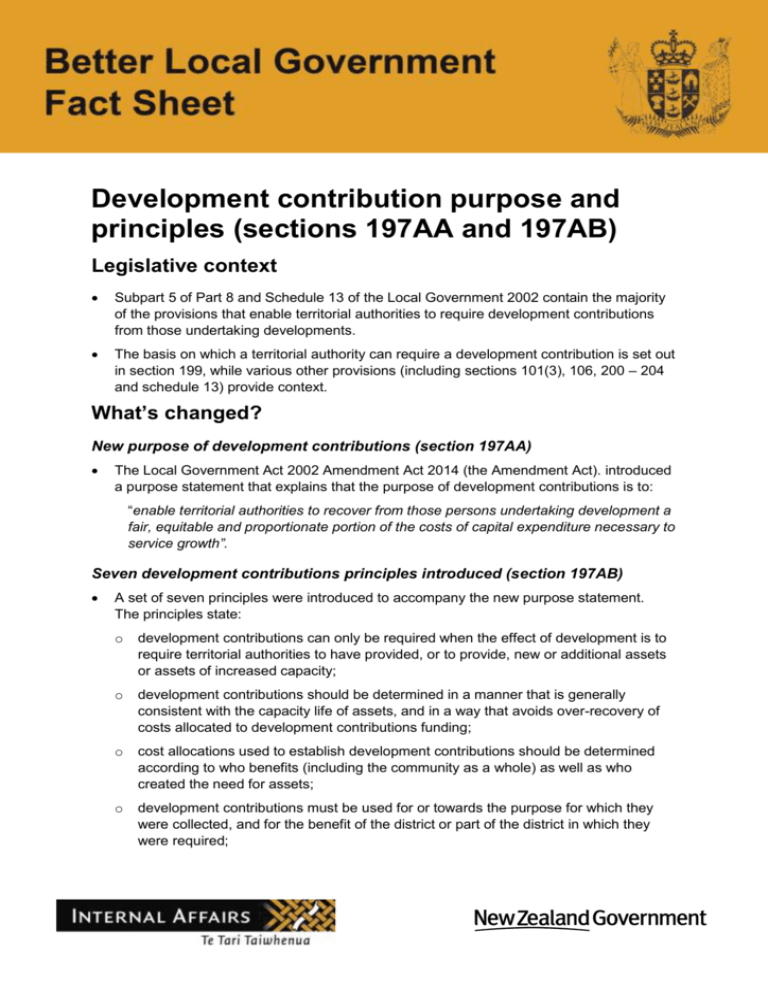
Development contribution purpose and principles (sections 197AA and 197AB) Legislative context Subpart 5 of Part 8 and Schedule 13 of the Local Government 2002 contain the majority of the provisions that enable territorial authorities to require development contributions from those undertaking developments. The basis on which a territorial authority can require a development contribution is set out in section 199, while various other provisions (including sections 101(3), 106, 200 – 204 and schedule 13) provide context. What’s changed? New purpose of development contributions (section 197AA) The Local Government Act 2002 Amendment Act 2014 (the Amendment Act). introduced a purpose statement that explains that the purpose of development contributions is to: “enable territorial authorities to recover from those persons undertaking development a fair, equitable and proportionate portion of the costs of capital expenditure necessary to service growth”. Seven development contributions principles introduced (section 197AB) A set of seven principles were introduced to accompany the new purpose statement. The principles state: o development contributions can only be required when the effect of development is to require territorial authorities to have provided, or to provide, new or additional assets or assets of increased capacity; o development contributions should be determined in a manner that is generally consistent with the capacity life of assets, and in a way that avoids over-recovery of costs allocated to development contributions funding; o cost allocations used to establish development contributions should be determined according to who benefits (including the community as a whole) as well as who created the need for assets; o development contributions must be used for or towards the purpose for which they were collected, and for the benefit of the district or part of the district in which they were required; o sufficient information should be available to demonstrate what development contributions are being used for and why; o development contributions should be predictable and consistent with the methodology and schedules in the development contributions policy; and o when calculating or requiring development contributions, territorial authorities may group developments or categories of land use, provided administrative efficiencies are balanced with fairness and equity, and grouping across entire districts is avoided where practical. Why? (What’s the intent of this change?) The Local Government Act 2002 previously contained no statement of why development contributions existed or what their purpose was. Territorial authorities therefore developed varying views as to what development contributions were for which subsequently contributed to variations in practice and outcomes. The new purpose provision is intended to create a common understanding of the intent of the development contribution provisions of the Local Government Act 2002. It is to serve as an overall reference point against which the appropriateness of development contribution policies and requirements can be tested. Previously, the principles that underpin the use of development contributions and good practice in implementation were not explicit, and were scattered between different sections of the Local Government Act 2002, case law and practice. The principles expand on the purpose statement and ensure all territorial authorities that use development contributions develop and apply their development contribution policies on a more consistent, common, basis and understanding. As with the purpose statement, the principles are expected to provide direction as to how development contributions are to be applied, and a reference point against which territorial developers, development contributions commissioners, and the courts can test the appropriateness of development contribution policies and requirements. The last principle, concerning grouping, was added to clarify that this practice is justified on the grounds of administrative efficiencies, but its use needs to be carefully balanced with considerations of fairness and equity. The practice of grouping across entire districts is intended to be generally discouraged, although it is recognised that in some circumstances total avoidance may be impractical. What does this mean in practice? The new purpose and principle provisions for development contributions come into force upon enactment. The provisions will be applicable to requirements for development contributions from the time of enactment (except where applications for consents, certificates or authorisations for service connections were made before provisions came into force). Territorial authorities have until 1 December 2014 to prepare any necessary information pertaining to changes to developments contributions policies to reflect the new purpose and principle provisions for consultation purposes, and until 30 June 2015 to adopt them. 2 Until 30 June 2015 a development contributions policy cannot be ruled invalid because it has not been amended to reflect the new development contribution purpose and principles provisions. Changes to development contributions policies may include making adjustments to development contributions methodology (including cost allocations, calculations concerning the capacity life of assets and how developments are grouped) or making additional information available on why development contributions are required. The duty to “take into account” the principles requires territorial authorities to actively consider whether and how they will be applied while allowing some flexibility to determine how this will be done (to enable local circumstances to be factored in, for example). As well as territorial authorities, development contributions commissioners are required to give due consideration to the principles when deciding an objection. In this context, the purpose and principles will be influential in providing direction where evidence in development contribution objection proceedings is conflicting. 3
